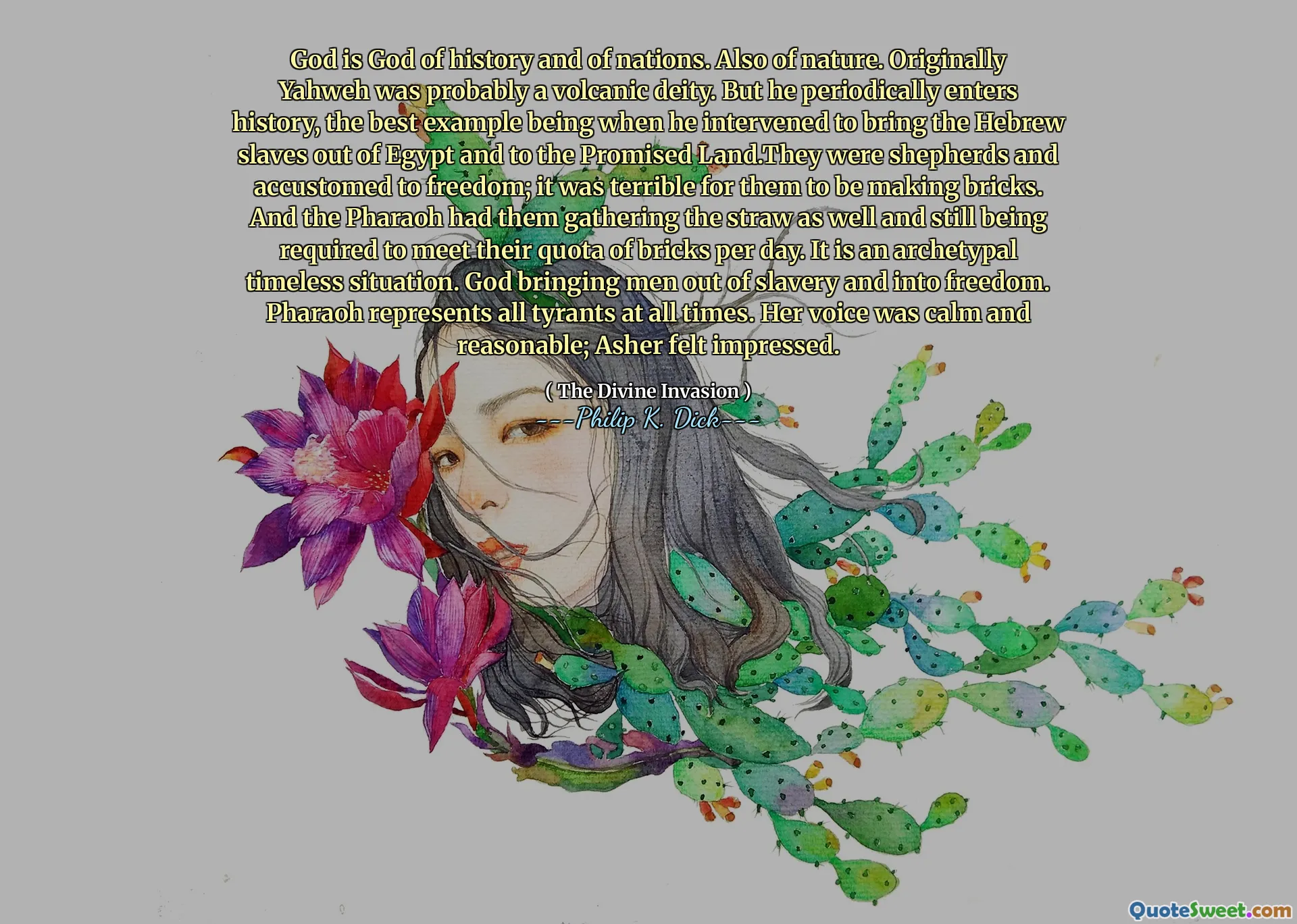
God is God of history and of nations. Also of nature. Originally Yahweh was probably a volcanic deity. But he periodically enters history, the best example being when he intervened to bring the Hebrew slaves out of Egypt and to the Promised Land.They were shepherds and accustomed to freedom; it was terrible for them to be making bricks. And the Pharaoh had them gathering the straw as well and still being required to meet their quota of bricks per day. It is an archetypal timeless situation. God bringing men out of slavery and into freedom. Pharaoh represents all tyrants at all times. Her voice was calm and reasonable; Asher felt impressed.
The concept of God as a deity of history and nations emphasizes His role in shaping human experiences, including natural elements like volcanic activity. Initially thought to be a volcanic god, Yahweh's most significant intervention in history is highlighted through the liberation of the Hebrew slaves from Egyptian bondage. These individuals, originally shepherds used to freedom, faced horrific conditions as they were forced into labor by Pharaoh, reflecting a universal struggle against tyranny.
This narrative exemplifies the archetypal theme of liberation, where divine intervention leads people out of slavery towards freedom. Pharaoh symbolizes every tyrant throughout history, representing oppression faced by many. The calm demeanor of a character named Asher indicates a deep engagement with this profound theme, showcasing the emotional and spiritual impact of such historical and divine events in the lives of individuals.











